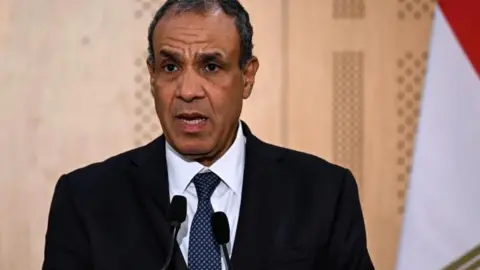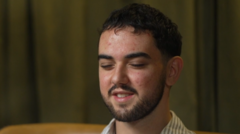The kaleidoscope of colors swirled before Calum Macdonald’s eyes lingered as he crossed into Vietnam, the overwhelming brightness signaling a grim fate. Fresh off a night out in Vang Vieng, Laos—where free shots and party vibes dominate—Calum unwittingly joined the ranks of methanol poisoning victims after indulging in spirits mixed with soft drinks at a hostel offering complimentary drinks. Strong enough to impair his vision, the effects became undeniable as he soon found himself sitting in a hotel room in Vietnam, unaware that the lights were indeed on.
Inviting friends along for an adventurous holiday, Calum sustained irreversible damage; he is now blind. He recalls the tragic deaths of six individuals caught in the web of methanol poisoning that night—two of whom were Danish girls he had crossed paths with at the hostel. Together with the families of other victims, Calum voices a call to action, urging the UK Foreign Office to raise awareness of such hazards when traveling abroad, particularly in regions prone to unsafe alcoholic beverages.
Simone White, a 28-year-old traveler who died shortly after sipping free shots at the same hostel, emphasizes the potential dangers of seemingly innocent holiday activities. Her mother, Sue, prevails upon forming requests to improve safety measures and information for travelers. “It’s painful to grapple with this loss, especially as nothing can revive Simone,” she shares with profound sorrow.
Methanol, a type of alcohol embedded in cleaning products and fuels, poses a tremendous health risk when introduced into consumable beverages. Unfortunately, poorly crafted alcoholic drinks found in Southeast Asia often pose a risk, leading to numerous poisoning cases annually, as noted by Doctors Without Borders (MSF). The onset of methanol poisoning mimics a hangover, with symptoms such as dizziness and nausea, complicating detection for affected individuals. However, within a day or two, dire consequences can emerge—potentially resulting in blindness or death. Consuming as little as 30ml could be lethal, and timely diagnosis is crucial for adequate treatment.
Kirsty McKie, another victim, succumbed to poisoning in Bali, emphasizing the irrational nature of such tragedies, where one individual survives while another does not. Another tragic encounter involved Cheznye Emmons, who died after ingesting a gin that tested immensely over the legal methanol limit. The haunting words that marked Cheznye's final moments stay with her mother: “I’m really, really scared.”
Calum's perspective on life shifted after learning of the losses suffered by fellow travelers. He encourages those visiting Southeast Asia to steer clear of free drinks and spirits altogether. “Explore the wonderful regional beers instead,” he urges travelers, now committed to sharing his cautionary tale to avert harm to others.
Calum is learning to navigate life with assistive technologies while expressing gratitude for having survived. This newfound commitment spurs him to join forces with other families combating similar tragedies in a fight against the shadows cast by methanol poisoning. The UK Foreign Office acknowledges the severity of the situation and is researching strategies to mitigate the risk, striving for improved communicative practices through travel advisories to heighten sensitivity towards this prevalent global issue.
Inviting friends along for an adventurous holiday, Calum sustained irreversible damage; he is now blind. He recalls the tragic deaths of six individuals caught in the web of methanol poisoning that night—two of whom were Danish girls he had crossed paths with at the hostel. Together with the families of other victims, Calum voices a call to action, urging the UK Foreign Office to raise awareness of such hazards when traveling abroad, particularly in regions prone to unsafe alcoholic beverages.
Simone White, a 28-year-old traveler who died shortly after sipping free shots at the same hostel, emphasizes the potential dangers of seemingly innocent holiday activities. Her mother, Sue, prevails upon forming requests to improve safety measures and information for travelers. “It’s painful to grapple with this loss, especially as nothing can revive Simone,” she shares with profound sorrow.
Methanol, a type of alcohol embedded in cleaning products and fuels, poses a tremendous health risk when introduced into consumable beverages. Unfortunately, poorly crafted alcoholic drinks found in Southeast Asia often pose a risk, leading to numerous poisoning cases annually, as noted by Doctors Without Borders (MSF). The onset of methanol poisoning mimics a hangover, with symptoms such as dizziness and nausea, complicating detection for affected individuals. However, within a day or two, dire consequences can emerge—potentially resulting in blindness or death. Consuming as little as 30ml could be lethal, and timely diagnosis is crucial for adequate treatment.
Kirsty McKie, another victim, succumbed to poisoning in Bali, emphasizing the irrational nature of such tragedies, where one individual survives while another does not. Another tragic encounter involved Cheznye Emmons, who died after ingesting a gin that tested immensely over the legal methanol limit. The haunting words that marked Cheznye's final moments stay with her mother: “I’m really, really scared.”
Calum's perspective on life shifted after learning of the losses suffered by fellow travelers. He encourages those visiting Southeast Asia to steer clear of free drinks and spirits altogether. “Explore the wonderful regional beers instead,” he urges travelers, now committed to sharing his cautionary tale to avert harm to others.
Calum is learning to navigate life with assistive technologies while expressing gratitude for having survived. This newfound commitment spurs him to join forces with other families combating similar tragedies in a fight against the shadows cast by methanol poisoning. The UK Foreign Office acknowledges the severity of the situation and is researching strategies to mitigate the risk, striving for improved communicative practices through travel advisories to heighten sensitivity towards this prevalent global issue.




















